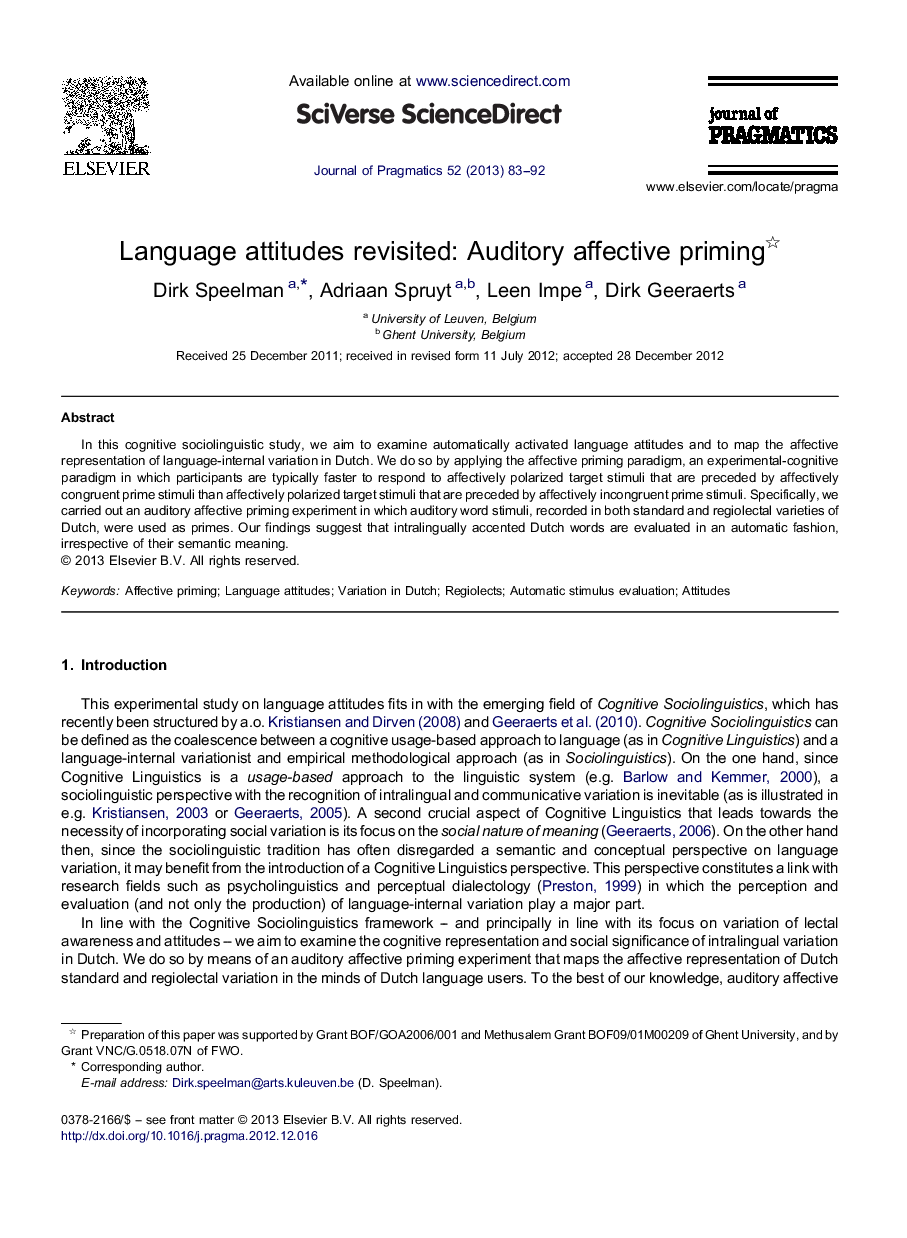| Article ID | Journal | Published Year | Pages | File Type |
|---|---|---|---|---|
| 932919 | Journal of Pragmatics | 2013 | 10 Pages |
In this cognitive sociolinguistic study, we aim to examine automatically activated language attitudes and to map the affective representation of language-internal variation in Dutch. We do so by applying the affective priming paradigm, an experimental-cognitive paradigm in which participants are typically faster to respond to affectively polarized target stimuli that are preceded by affectively congruent prime stimuli than affectively polarized target stimuli that are preceded by affectively incongruent prime stimuli. Specifically, we carried out an auditory affective priming experiment in which auditory word stimuli, recorded in both standard and regiolectal varieties of Dutch, were used as primes. Our findings suggest that intralingually accented Dutch words are evaluated in an automatic fashion, irrespective of their semantic meaning.
